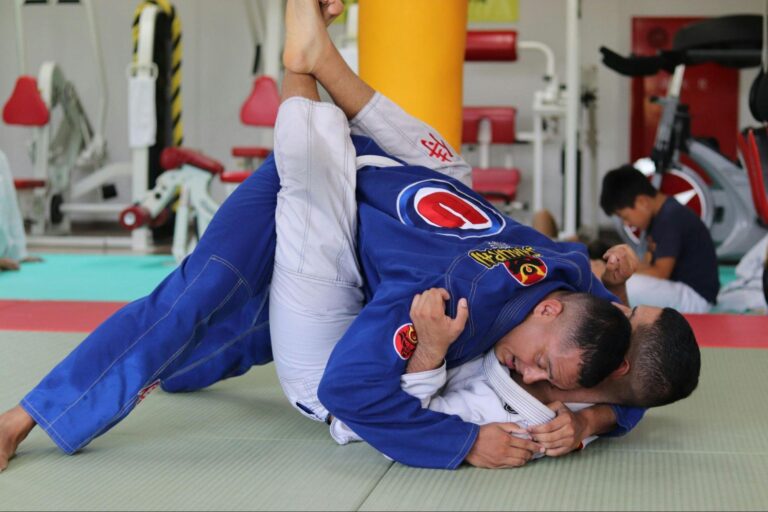Discipline extends beyond the confines of the dojo or training facility in the martial arts world. Although most martial arts, from karate to MMA, require little equipment, it is crucial to meticulously care for your equipment and practice high hygiene standards. Thankfully, maintaining your equipment’s pristine condition is easier than you think, as this guide will show you.
Why Cleanliness Matters
Before we delve deeper into the article, let us briefly touch on the importance of cleanliness regarding your martial arts equipment. Unless you are rich or have sponsorships like those athletes listed on betting sites for UFC fights, meaning you can use new equipment every time, you will need to clean and look after it. Here is why.
Hygiene is the primary reason. All martial arts result in you working up a sweat, and the combination of the moisture from your perspiration and other bodily fluids and your body heat provides the ideal breeding ground for bacteria and fungi. These ultimately lead to unpleasant odors, which nobody wants. Keeping your clothing and equipment clean is vital for your health and the well-being of your training partners and opponents.
It is no secret that clean gear performs better. Clean surfaces help improve grip and reduce friction, lending themselves to a more comfortable and effective training session. Whether it is your uniform, gloves, or protective headgear, removing dirt, sweat, and anything else that should not be there helps ensure your equipment functions as intended.
Lastly, looking after your martial arts gear and ensuring it remains clean when not in use helps it last longer. Sweat, grime, and bacteria can damage fabrics, resulting in them needing replacing sooner than you would expect. Maintaining the integrity of your equipment extends its longevity, which saves you money in the long run because you won’t need to replace your gear as frequently.
How to Clean and Care for Your Equipment
Maintaining the cleanliness of your gi or uniform is essential for personal hygiene. Remove your uniform from your bag as soon as possible until you have time to wash it. The dark, confined bag space promotes bacterial and fungal growth, neither of which is ideal.
If your uniform is visibly soiled, attend to it immediately to prevent the setting of stains and odors. You should wash your gi or uniform after every use, even without visible marks or stains. Use a mild detergent and follow the instructions on the care label to prevent shrinkage or fabric damage. Different fabrics and blends can have specific requirements for washing, drying, and ironing to maintain their quality.
Once washed, hang your uniform so that it air-dries naturally. Machine drying is faster but can damage fabrics or reduce their lifespan, so air drying is always preferred.
Gloves and Hand Wraps
The process for cleaning gloves and hand wraps is similar to cleaning your gi or uniform. Wipe your gloves with a disinfectant or a damp cloth after each session. Doing so helps remove sweat and bacteria. Pay attention to areas prone to odor, such as the joints of the fingers and the palms.
Most gloves can be machine-washed with a mild detergent. We recommend placing your gloves in a mess bag if machine-washing to avoid catching the finger in the machine’s drum. Specialist cleaning products for leather or other materials can be applied to gloves to help keep them supple and prevent cracking.
Use a mesh bag or consider hand-washing hand wraps for similar reasons. Again, like your gi or uniform, drying gloves and hand wraps naturally is best. However, ensure they are thoroughly dried before storing them because dampness can cause unpleasant odors and accelerate bacterial growth.
Protective Gear
Protective gear ensures your safety, so keeping it in top condition is not only advised but essential. Start by wiping down your protective gear’s external and internal surfaces, such as headgear and shin guards. A mild disinfectant or anti-bacterial wipe helps kill any bacteria and keeps your equipment smelling fresh.
If your gear has removable padding or inserts, disassemble the various components to aid you in deep cleaning. Some protective equipment, particularly headgear, has many nooks and crannies perfect for housing bacteria and other unpleasantries. Ensure your equipment can be disassembled by design; you don’t want to risk damaging or breaking gear whose sole purpose is to protect you!
Many combat sports require mouthguards or gum shields, as they are sometimes called. The best way to keep these ship-shape is to treat them like your teeth. Apply a non-abrasive toothpaste and brush the guard inside and out with a soft-bristled toothbrush. Rinse the guard thoroughly and leave to air dry. Do not soak in hot water because the heat can alter the guard’s shape. Likewise, avoid using chemicals to clean your mouthguard because you must put it back in your mouth at some point! Toothpaste is safe and effective,
Mats and Training Surfaces
The mats and surfaces you train on are where all the action happens, but they are often neglected when cleaning. Remove dirt and debris by sweeping or vacuuming the training area, which maintains cleanliness while reducing the risk of falls and slips.
Mats must be disinfected regularly, especially if they are in direct contact with the skin. Regular cleaning helps prevent the spread of bacteria and skin infections.
Conclusion
The significance of a well-maintained hygiene regime for your martial arts equipment cannot be overstated. Cleaning and caring for your equipment extends beyond aesthetics; it is a commitment to your health and that of others and your gear’s durability.
Incorporate cleaning as part of your post-training rituals. Even something as simple as promptly cleaning your uniform, gloves, and protective gear helps prevent bacterial growth, unpleasant odors, and unnecessary wear and tear.
Never use harsh chemicals when a mild detergent will suffice. Similarly, always follow the care instructions for your equipment before machine-washing and drying; air dry naturally wherever possible.



